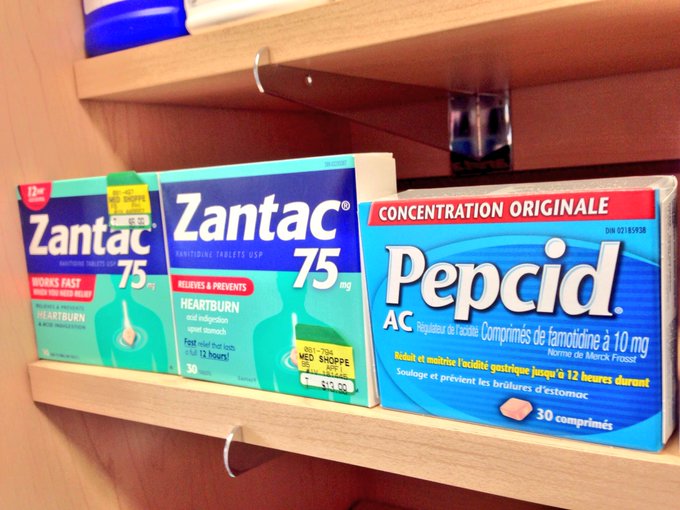
Dalhousie Medical School researchers are looking at how Zantac and Peptid AC reduce cancer growth and spread.
Dalhousie Medical Research University, in Nova Scotia, Canada, is investigating how common over-the-counter drugs used for the treatment of gastrointestinal disorders might enhance the body's immune system and ability to fight off cancer.

While a number of medications can modify immune function to enhance anti-cancer immunity, many of them can't be used routinely because of negative side effects. But the Dalhousie team has found two everyday medications—ranitidine and famotidine—that reduce breast cancer growth and metastasis in mouse models.
"The immune system plays an important role in defending against cancer," says Dr. Jean Marshall, professor in the Department of Microbiology & Immunology and the study's principal investigator. "It can both reduce the incidence of initial tumor development and slow down or prevent cancer spread."
In the general population, ranitidine and famotidine—more commonly known as Zantac and Pepcid AC—are regularly used to treat peptic ulcers and acid reflux. These non-prescription drugs, widely recognized as well tolerated and safe, are also used by cancer patients to ease chemotherapy-related nausea.
"Because cancer patients often take these drugs to reduce chemo side effects, our team of clinical and basic scientists looked at how they impact function of the immune system in breast cancer," says Dr. Marshall. "Our experiments have shown promising results; we found that daily treatment of ranitidine or famotidine inhibited the development and spread of breast tumors in mice."
The next step is to test whether the drugs have a similar effect on other cancers, and if they have the same impact on the human immune system in a project recently funded by the Canadian Cancer Society.
"The outcome of our laboratory studies are exciting, warranting further investigation into their transferability to people," says Dr. Marshall. "Rantidine and famotidine have potential to safely prevent or slow down the development of cancer by boosting the immune response. If similar effects are seen in people, the drugs could aid in effective cancer immunotherapy or cancer prevention in those at high risk of developing the disease."
If these studies continue to be successful it may revolutionize cancer prevention and treatment. And give breast cancer patients real hope.
Howdy PIC ,
ReplyDeleteThis will be a great breakthrough for so many people , right under our nose and as we say down here ... can't see the trees for the forest Hahahaha .
Go to WAG
Good post sweetie
Love always PIC
Ain't that the way life goes? The greatest discoveries are made by accident. I just ordered 500 packages of Zantac... hahaha! Going to WAG.
ReplyDeletethanks Sweetie
Luv ya